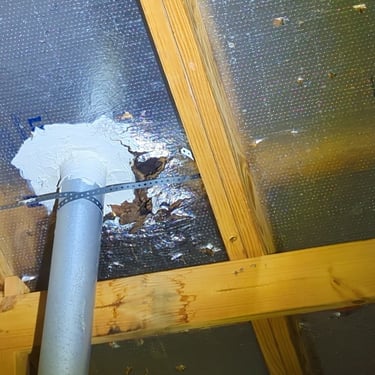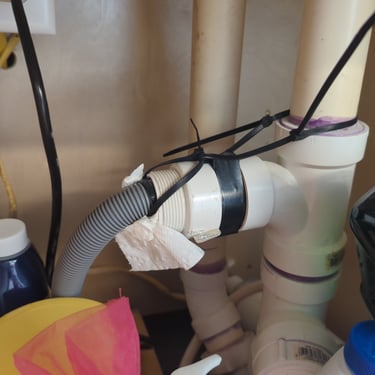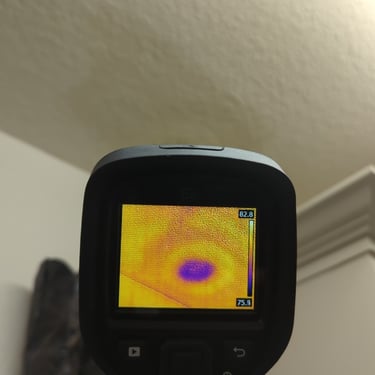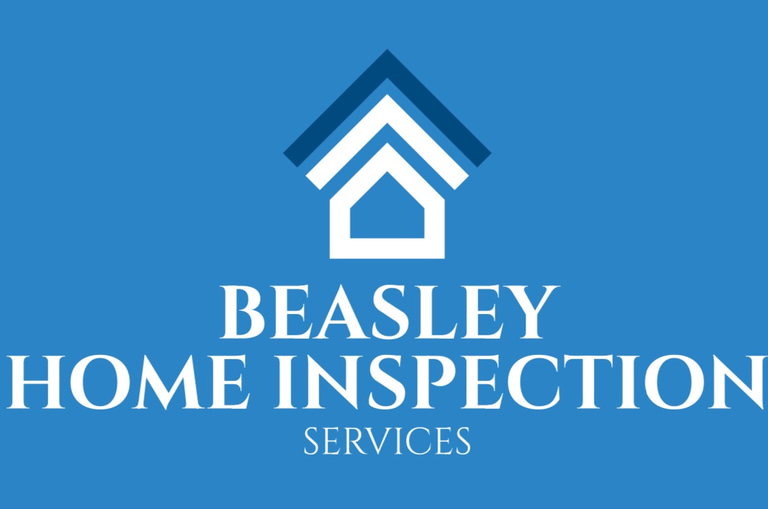Do I Need A Home Inspection?
Now that you've found your next home you may be asking, "Do I need a home inspection?" The short answer is, "Yes." This post explains why that is.
REAL ESTATEHOME INSPECTION
Clay Hestilow
7/29/20255 min read


Do I Need A Home Inspection?
You’ve finally found it, the perfect home. It checks all of the boxes: great neighborhood, great schools, a huge yard, close to work, and plenty of room for the whole family. It’s perfect. You spent weeks (maybe months) to find it and now that you have you need to move quickly before someone else snatches it up. You put in an offer, it’s accepted, you pay your earnest money and the option period begins. Now you have seven days to decide if you’re going to go through with what is likely the biggest investment of your life.
Is a home inspection necessary? You’ve seen the home, after all; but have you really? You’ve walked through it, maybe two or three times, but you were probably focused on the layout, the finishes, the potential, the big picture… not to mention you may have seen a dozen homes or more during the process. A home inspector is going to go through your next home, impartially, top to bottom and provide you with the information that you need to make the right decision on how to proceed with your real estate transaction.
Think of a home inspection report like a Carfax for a house. Most everyone is familiar with looking over a CarFax, it collects all of the reported data on a car from maintenance to accidents to claims so you know as much as you can about the vehicle's history before you buy it. A home inspector is going to produce a report on the current state of all of the major components of a house like the structural, electrical, HVAC (heating, ventilation, air conditioning), plumbing, and appliances. Your home inspector is taking a look in places that you probably didn’t, like up in the attic, on the roof, in the crawlspace, etc.
What’s in a Home Inspection Report?
Professional Home Inspectors in Texas are regulated by the Texas Real Estate Commission (TREC) and its TREC who establishes the minimum standards of a home inspection. Items on the report can be marked Inspected, Not Inspected, Not Present, and Deficient (recorded as I, NI, NP, D) Any inspected item with any kind of issue will be marked “deficient.” The term deficient may sound scary, but every home will have deficiencies on the inspection report. A deficiency can be a scratch on the floor, a door that doesn’t latch properly, or a leaky faucet.
In Texas, home inspectors use the report form REI (Real Estate Inspection) 7-6 as mandated by TREC. This report is broken into six sections each with subsections:
Structural Systems
A. Foundations
B. Grading and Drainage
C. Roof Covering Materials
D. Roof Structures & Attics
E. Walls (Interior & Exterior)
F. Ceilings and Floors
G. Doors (Interior & Exterior)
H. Windows
I. Stairways (Interior & Exterior)
J. Fireplace & Chimneys
K. Porches, Balconies, Decks, & Carports
L. Other
Electrical Systems
A. Service Entrance & Panels
B. Branch Circuitry
C. Other
Heating, Ventilation, & Air Conditioning Systems
A. Heating Equipment
B. Cooling Equipment
C. Duct Systems, Chases, & Vents
Plumbing Systems
A. Plumbing Supply, Distribution Systems & Fixtures
B. Drains, Wastes, & Vents
C. Water Heating Equipment
D. Hydro Massage Therapy Equipment
E. Gas Distribution Systems &
Gas Appliances
F. Other
Appliances
A. Dishwashers
B. Food Waste Disposers
C. Range Hood Exhaust Systems
D. Ranges, Cooktops, & Ovens
E. Microwave Oven
F. Mechanical Exhaust Vents & Bathroom Heaters
G. Garage Doors Operators
H. Dryer Exhaust Systems
I. Other
Optional Systems
A. Landscape Irrigation (Sprinkler) Systems
B. Swimming Pools, Spas, Hot Tubs, & Equipment
C. Outbuildings
D. Private Water Wells
E. Private Sewage Disposal Systems
F. Other Built-In Appliances
G. Other
What do you do with the home inspection report?
The home inspection report is a tool. It’s facts about the house. As it is at the time of the inspection. It’s there to help you make an informed decision about your transaction. The items listed will be categorized in one of four conditions for your consideration.
Safety: Conditions exist that do, or could, pose a health risk. These should be repaired or addressed. Items like a loose stair rail, the absence of safety glass where required, or wiring issues that could pose a fire risk would all be listed as Safety issues.
Repair: These are damages or irregularities that are recommended for repair. Here you’ll find items like a door that doesn’t latch properly or a leaky faucet.
Monitor: Items that do not need any immediate action but may in time and should be monitored. Things like settling cracks, which are normal but you should keep an eye on them to make sure that they don’t open up and indicate a larger foundation issue.
Improvement: This refers to items or conditions that are not deficient but have room for improvement. For example, the inspector may note that the attic was hotter than expected and recommend additional ventilation as an improvement. Which would make the home more efficient, reduce energy costs, and extend the life of the HVAC system.
A home inspection report is long but it’s not an exhaustive list of every single item in particular. Instead, it’s representative of existing conditions. For example, any home that is more than a couple of years old is going to have dings, dents, and scuffs in the walls and the inspector will make that note and include a few pictures, but they won’t document every one of them. They’re just letting you know that things like this exist in the home.
Once you have the report, it can be overwhelming so it’s best to go over it with your real estate agent. A good agent has reviewed loads of inspection reports and they can help you prioritize which items you need to have the seller address or to include in negotiations.
How do you Choose a Professional Home Inspector?
The first thing you want when it comes to your home inspection are “details.” As I stated before, TREC establishes the standards as a minimum but some inspectors will go above and beyond those standards to give you even more information than they’re required to. At Beasley Home Inspection Services that’s exactly the way we operate. We check items and use instruments we’re not required to because it gathers more information for you. Also, we’re licensed to perform our own Wood Destroying Insect/Termite inspections, Mold Inspections.
We’re completely in-house and don’t use third parties for optional systems like pools, spas, water wells, and septic systems. In addition to home inspections, we offer a full line of inspection reports for single family homes, condos, manufactured homes, duplex and four-plex units, and commercial properties. If you’re building a home we can handle all of your phase inspections so you can have peace of mind in knowing your project is getting done the right way.
Need #1 Detailed Inspection Reports
At our inspections we will…
Take foundation readings with an instrument called a ZipLevel
Use a FLIR thermal imaging camera to scan the entire house for issues like leaks, gaps in insulation, and wiring or breakers that are too hot and present a fire hazard.
Inspect the roof by walking on it if it can be done safely
Check all of the accessible attic areas
Inspect and operate all appliances
Test washer and dryer hookups
Operate every window
Inspect the HVAC system and take temperature readings
Check every receptacle and switch
Inspect fences
Inspect flatwork, driveways, and walkways
Run all of the Sprinkler System zones
Inspect the fixtures and appliances of outdoor kitchens
Inspect any outbuildings on the property
Lakehouse Boat docks, boat lifts, and bulkheads.
Inspect Septic Systems
Take static water pressure readings
Water Wells (We also offer drinking water testing for the presence of bacterial total Coliform, E. Coli (Escherichia Coli), and much more.
Sewer scope inspections
Need #2 Same Day Reports
The second priority with a home inspection is time. The clock is ticking and you need that report as soon as possible. At Beasley Home Inspection Services we create the report as we go. Yes, it’s more time consuming, but we’ll have your completed report to you the same day, typically within an hour or two of the inspection.
At Beasley Home Inspection Services our motto is, “Make it easy, choose Beasley!" Purchasing a home is complicated and tends to be stressful. We’re here to make the inspection process one of the high points of your real estate transaction. The next time you’re in need of an inspection give us a call!



Contacts
chris@beasleyinspections.com
Socials
Book your inspection today!
(936) 827-6128
TREC#23467
TPCL#0936411
MAT#1433
903 Christi Lyn Lane
Conroe, Texas 77304
